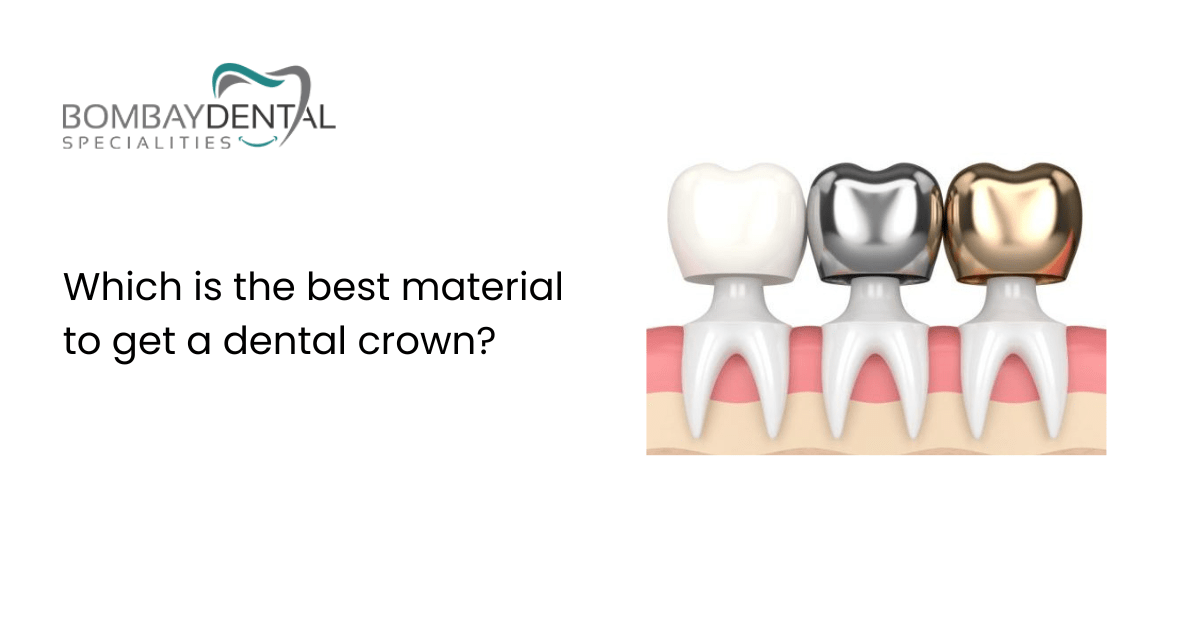From protecting a weak tooth from further decay to restoring a broken tooth, you might need a dental crown for several reasons. No matter how much time you put into taking care of your teeth, sometimes it still might not be enough, and a dental crown is the only thing that can save your damaged tooth. So, it is essential for you to find the best material for your dental crown.
The Best Material for a Dental Crown
As an individual, if this is the first time you are getting a dental crown, you might not have all the knowledge required to choose the best material. This blog sheds light on some of the highest-quality materials to give you an idea of what you can choose.
Gold:
Gold is durable and strong, which is why it is one of the most popular and termed the best material for a dental crown. If you maintain good oral hygiene, a gold dental crown will last you for years. Gold crowns have minimal impact on the health of adjacent teeth. However, if you do not like the colour, you can choose other materials too.
Porcelain:
If you want your crown to match the colour of your teeth, porcelain is the material you should choose. It matches the colour and texture of your natural teeth, and you would not even notice the difference. People can have porcelain teeth for years, and even though it can stain with red wine and drinking too much coffee, it is not something you should worry about.
Zirconia:
Zirconia, a synthetic material derived from zirconium metal, is a newer option for dental crowns that is gaining popularity among dentists and patients. It is highly functional as a dental crown material due to its hardness and durability to withstand years of chewing pressure, especially in molars and premolars, which are subjected to the most force.
Emax:
Emax dental crowns are known for their glass-like appearance and complete translucency, making them virtually undetectable. Dentists often use Emax for the anterior teeth or canines while opting for zirconia for molars and premolars.
In conclusion, the choice of material for a dental crown depends on several factors, including the location of the tooth, the amount of tooth structure remaining, and the patient’s preferences. Each material has its own advantages and disadvantages, and the best option will vary from case to case. It is important to discuss all available options with a qualified dentist to make an informed decision and ensure optimal long-term dental health.

 Book Appointment
Book Appointment

 Call Us
Call Us